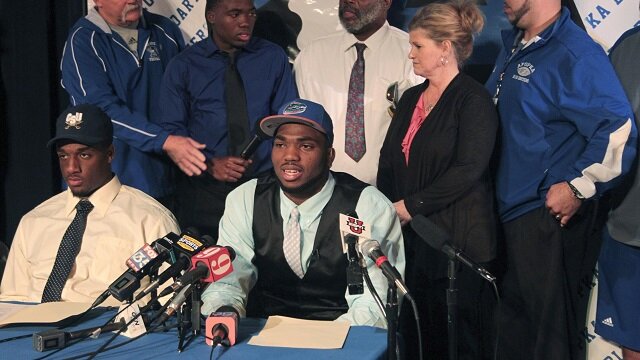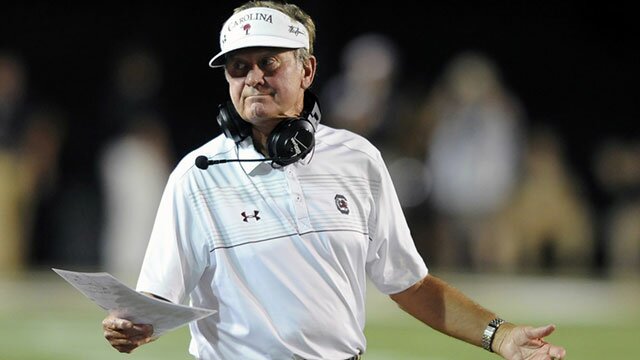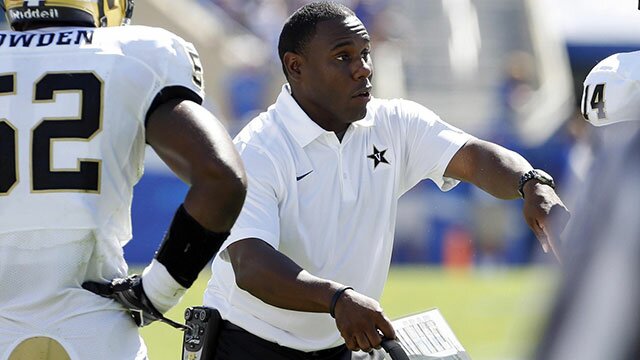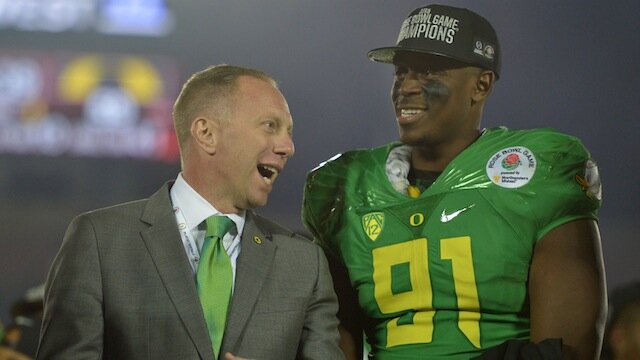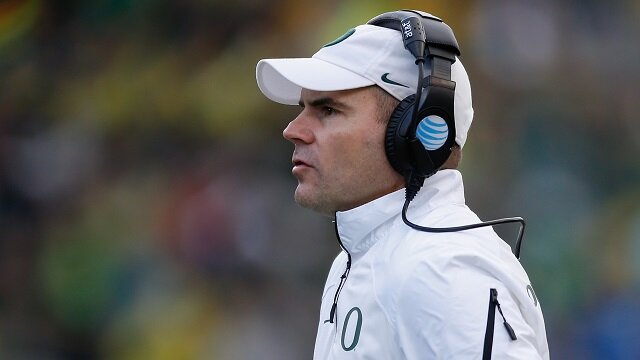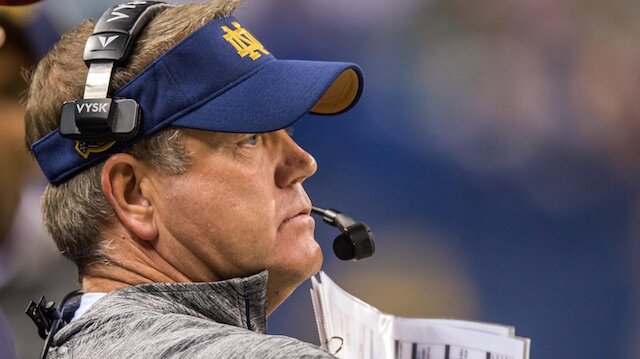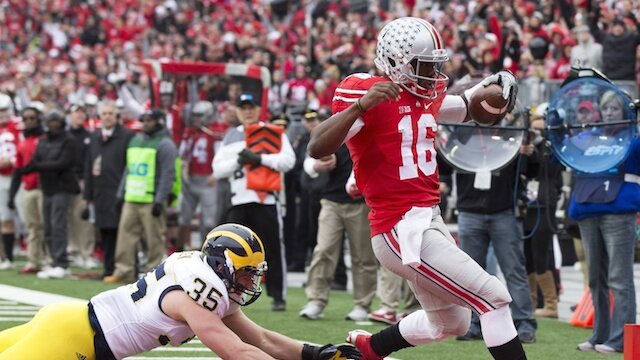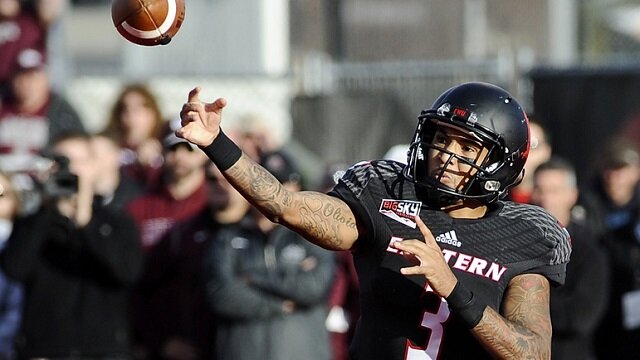National Signing Day has Become Severely Overblown
It’s February. The Super Bowl has passed, bringing an end to the NFL season. Pitchers and catchers have yet to report to MLB spring training. The NBA and NHL are months away from heating up in their respective postseasons. Needless to say, it’s not exactly the hottest month to be a sports fan.
So, with this being said, it totally makes sense that national signing day, in which high school football recruits can officially declare which college they intend to play for next year, would become a huge source of sports commentary. These young kids are being rewarded for their play on the field by getting a full scholarship to big-name universities. It’s quite an event.
Making it more of an event, of course, is the consistently increasing coverage of the entire spectacle. ESPN has been ramping up their efforts to make signing day a nationwide phenomenon. Declarations to schools are made on live TV, in front of numerous microphones and cameras, either at press conferences or in the homes of recruits. High school kids are put on the highest pedestal in order to ensure the world knows exactly where they intend on going to college.
Let me start with this: I truly do understand the importance of national signing day. This is a newsworthy event for both the recruits and the schools they end up picking. High school kids are being rewarded for their success on the football field by getting a full ride to some of the most powerful programs in the country. Said universities are shoring up their future by adding highly-touted prospects, convincing fans the future is bright. This is all fine and well.
But, my God, the constant coverage, the necessity of having to wait until today for recruits to officially declare, the juggling of the various hats, it’s all so overdone. Quite frankly, there are numerous reasons why national signing day has become a giant mess.
Do we really need nonstop reporting spread across the country, featuring numerous live announcements? Do we really need tables full of four or five hats from respective colleges, with representatives from each school waiting with baited breath to see which way a specific recruit leans? Do we really need the homes and living rooms of families loaded with camera crews waiting to interview kids minutes after they make one of the biggest decisions of their lives?
Again, it’s a big day, but not to the point where it needs to be turned into a gigantically hyped bonanza complete with nonstop coverage and analysis.
Remember, these aren’t pro prospects; these are 17- or 18-year-old kids. It’s tough to believe they’ve gone through anything like this before. What was once a relatively calm day, in which announcements were made in front of family and friends, perhaps maybe a camera or two, now features entire production crews sitting on the front lawns of people’s houses. Instead of a prospect just declaring “hey everybody, I plan on going to (fill in university here),” kids are holding their own press conferences, dragging out their choice of which school to attend just to add a little drama.
This isn’t the NFL Draft, but it sure is getting hyped like it. On top of this, the youth of these recruits brings up yet another issue with the circus signing day has become.
This nonstop coverage will no doubt give each and every featured recruit quite an ego boost. They may have excelled in high school, and this is certainly a great accomplishment. This hardly means they’re ready to take the field against some of the elite schools within the respective conference they just joined, though. Yet, when these kids are holding the attention of media giants like ESPN, who wait all day just to hear what the school of choice is before asking them to go live on SportsCenter, you can’t blame them for feeling over-confident in themselves.
At the same time, it’s important to remember some of these kids aren’t even going to start next year. There is a good handful that may see a decent amount of playing time in the coming season, but there will also be plenty of top recruits who may even be red-shirted for their first year. The big-name programs they’re joining are nationally recognized for a reason, and it isn’t because they give numerous freshmen tons of playing time.
However, when you have young kids hoisted in front of cameras, who are given the impression the whole world is waiting for which hat they decide to put on their head, you have to think it could lead to over-confidence. Consider how many recruits announced their decision last year by using the phrase “taking my talents,” as if this was somehow on the same level of LeBron James announcing he was joining the Miami Heat in 2010.
But these aren’t athletes like James, they’re just high school students. I’m not saying this as a slight on their abilities, just pointing out the fact that this ramping in media coverage has given them way more attention than they might have earned at this point in their athletic careers.
As bad as the uninterrupted attention aspect of signing day is, it’s not the only issue to take with it.
Another problem with all of this is the fact recruits can technically verbally commit to a school before today. At the same time, they can’t officially declare. Because of this, while some of these kids have essentially made their decision, this certainly doesn’t mean other programs are going to stop calling them, asking if they’d like to change their mind.
As if the constant calls from recruiters despite prospects already making up their minds weren’t enough, the methods in which some of these schools use to sway recruits away from their initial choice have a tendency to be labeled as sketchy at best. Recruiters bring up graduation rates, or take swings at the football program itself. South Carolina coach Steve Spurrier claimed an opposing school once told a recruit lies about the crime rate around the university in attempts to make him second-guess his decision. While coaching at University of Tennessee, Lane Kiffin reportedly told receiver Alshon Jeffery he would end up spending his life pumping gas if he went through with playing for the Gamecocks.
Imagine being a 17-year-old kid. You’ve already made your choice in the school you want to play at, but you’re still having recruiters calling you to keep pitching their school to you, all the while slandering the program you chose in attempts to convince you you’ve made the wrong call.
It’s a lot for a high school student to have to deal with, and is just yet another aspect of what makes signing day such a hot mess. All of this could go away if the rule about when you can officially declare would be erased. However, why would the NCAA want to do this? Why take away the extravaganza that signing day is these days?
At the end of the day, it all highlights just what an unnecessary spectacle today has become. It’s taken what should be a big deal mainly for a kid, his family, and the school he’ll be attending, and turned it into nonstop national coverage for no other reason than the fact February is a quiet month in the sports world.
But, if you’re like me, and you agree national signing day has become about 100 times bigger than it really needs to be, I wouldn’t hold your breath in hoping things are going to change for the better any time soon.
Consider the fact the size of the coverage has been trending up for years now. People are watching, and what this says to sports media is “we need to expand; we have to give them more.” This year, there will be 15 live announcements from some of the highest touted recruits. Next year, it’s going to go up, and will likely do so in the years after. Will it matter that some of these recruits will have already informed their university of choice about their decision? Will coverage decrease due to some of the kids choosing to simply tweet where they intend on going to school next season well before they can officially declare?
Not even a little bit. As long as this rapidly snowballing coverage is getting attention, nothing is going to be dialed back.
It’s a shame, really. Most of these recruits have no idea how to handle such an increase in exposure. They don’t give post-game interviews; they don’t do call-ins to national radio stations.
Today, though, they have a production truck’s worth of equipment sitting in front of them waiting to broadcast their life-changing decision. And when these kids do so, maybe then recruiters from other programs will finally stop calling them day in and day out to talk about why the school they’re choosing is not where they want to be.
Something definitely needs to change when it comes to the spectacle National Signing Day has become, but I fear it won’t be changing for the better anytime soon. Right now, signing day is an overblown circus, and it’s only going to get worse.
Casey Drottar is a Featured Columnist for www.Rantsports.com. Follow him on Twitter or “Like” him on Facebook
SEC Hot Seat Monitor: S. Carolina's Steve Spurrier
In just over two months, Steve Spurrier will turn 70 years old. Read More
SEC Hot Seat Monitor: Tennessee's Butch Jones
Butch Jones has been a winner at each and every stop in his coaching career. Read More
SEC Hot Seat Monitor: Florida's Jim McElwain
When the Florida Gators fired Will Muschamp as their head football coach last year, the Gator faithful were hopeful that things might turn around. Read More
Sanford Can Take Irish to New Year's Bowl
Notre Dame is looking to get back to a New Year's Day bowl game and Mike Sanford could be the man to take them there. Read More
Roquan Smith Great Fit For Michigan Football
Jim Harbaugh may have been behind the eight-ball in 2015's recruiting scramble, but he could nab another top-30 prospect the UCLA Bruins failed to secure. Read More
SEC Hot Seat Monitor: Vanderbilt's Derek Mason
The Vanderbilt Commodores suffered through a miserable 2014 season. Read More
Oregon AD Overlooked In Helfrich Extension Hype
Oregon’s Athletic Director and football coach got raises and contract extensions at the same time, and that’s no coincidence. Read More
Chad Kelly Has One Last Shot With Ole Miss
Chad Kelly is an incredibly talented quarterback who has derailed his career with off-field incidents. Can he turn things around at Ole Miss? Read More
Ducks Smart To Extend Mark Helfrich's Contract
The Oregon Ducks made the right call extending Mark Helfrich's contract. Read More
Top 5 Defensive Prospects Notre Dame Added
The Fighting Irish were able to reel in a number of impressive defensive prospects on Signing Day who could end up having outstanding careers for Notre Dame. Read More
J.T. Barrett Should Emerge As Ohio State’s Starter
Cardale Jones had arguably the greatest three-game run in college football history, but it's still not enough to immediately award him the starting nod next September. Read More
Adams Will Force Other Oregon QBs To Step Up
Instead of giving the starting QB job to someone scared to follow in Marcus Mariota’s footsteps, the Oregon Ducks went and got a proven winner in Eastern Washington’s Vernon Adams. Read More





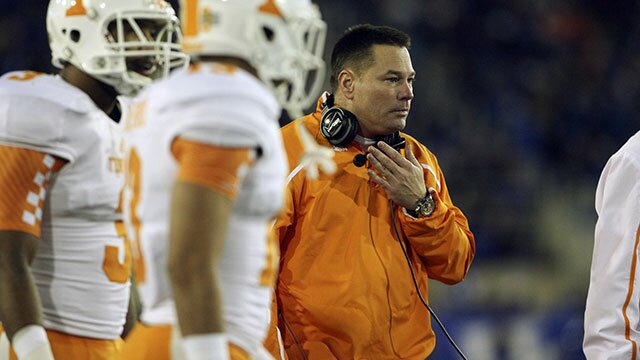
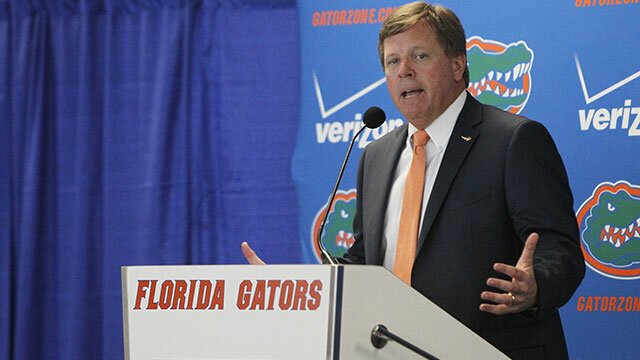
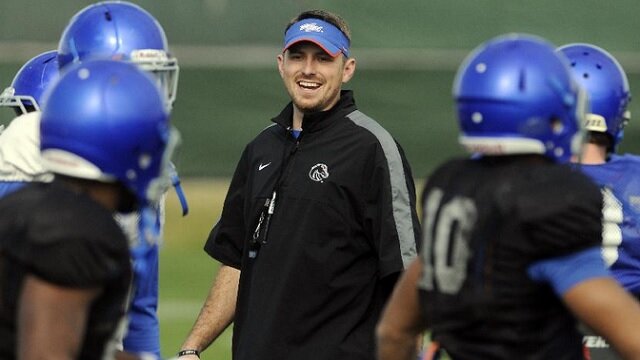
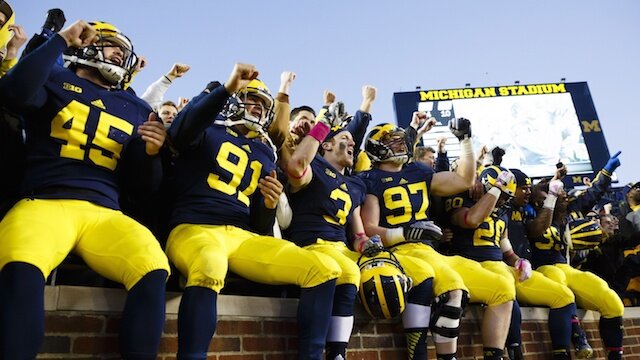
 @cdrottar19
@cdrottar19 